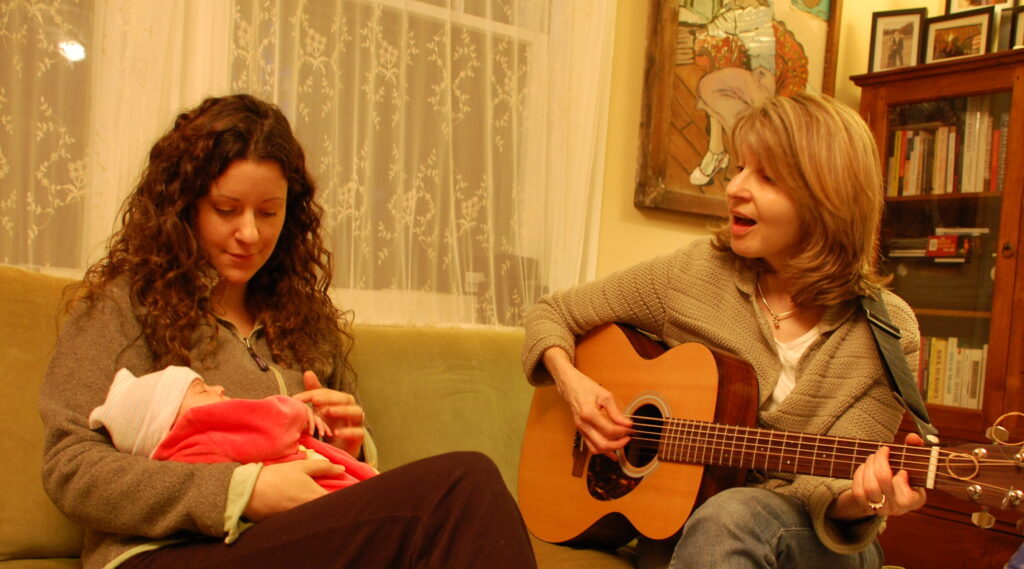
"It's all about love, and finding that connection to express the love through." Tiffany Ortiz, Director of Carnegie Hall's Lullaby Project.
Lady Lullaby
Singing lullabies is a human instinct, and humans in every culture on earth do it.
We’ve always done it, and it may have even saved our species in the beginning when a grownup had the instinct to croon to a baby so the tiger wouldn’t hear it crying. The baby liked it and calmed down, so we kept it up.
Now we know why: science tells us that singing lullabies are important for the physical and emotional well-being of a child. Blood pressure is regulated and the “stress” hormone cortisol is lowered. The “happiness” hormone dopomine increases. Music improves early cognitive development by lighting up all the areas of the brain, which forms stronger connections that help with learning all throughout life.
And adults get the benefits too, as our brains actually sync up and heartbeats coordinate so we get those good hormones kicking in too. There’s an emotional benefit for us: when we sit and sing to a baby we can share our feelings and secrets—happy or sad—and the baby will never tell anyone. There are lullabies from all over the world that tell the stories of (mostly) women throughout the ages telling their stories, stories of both joys and challenges.
But the majority of busy young parents today do not sing to their children at bedtime, so it’s up to grandparents to keep this important genre alive, pass the traditions and cultures along through songs, and form a bond with grandchildren that can last a lifetime.
The Lullaby Connection: A Grandparent’s Legacy of Love is written in collaboration with Carnegie Hall’s Lullaby Project. It tells the backstories of well-known lullabies, along with simple facts and inspiring quotes. But it also supports and guides grandparents to sing to their grandchildren, even when they think they can’t sing.